how long after monoclonal antibodies are you contagious
After the antibody infusion, Bob's symptoms continued to improve. Patients receive the antibodies through IV infusion in the clinic, which takes about one hour plus another hour of observation for potential allergic reactions. Our key findings add to the evidence that a changing climate is making it harder to protect human health. Learn more.
Talk to your doctor if you are unsure what treatments you received or if you have more questions about getting a COVID-19 vaccine. The test can provide information about how your body reacted to infection with severe acute respiratory syndrome coronavirus 2 (SARS-CoV-2). The CDC recommends an mRNA vaccine over the J&J vaccine. And so its unlikely that most people who have antibodies are still contagious. Talk to your doctor if you are unsure what treatments you received or if you have more questions about getting a COVID-19 vaccine. Pfizer Says Bivalent COVID-19 Booster Significantly Increases Antibodies to Fight Omicron. Share your voice and advocate for policies that will save lives. Monoclonal antibodies for COVID-19 may block the virus that causes COVID-19 from attaching to human cells, making it more difficult for the virus to reproduce and cause harm.
Youre still eligible to receive monoclonal antibodies as long as you meet the other eligibility criteria. Lori says it is not uncommon to have family members receive infusion treatments together. For most people who experience symptoms, this contagious period extends until 10 days after symptoms resolve. WebBenefits of antiviral therapy. "I was feeling like fever was coming on and had a headache. 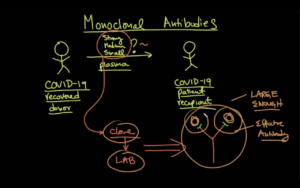 Joyce learned her results were positive through Patient Online Services, Mayo Clinic Health System's patient portal, that evening. (2020). WebThey are a type of medical treatment.
Joyce learned her results were positive through Patient Online Services, Mayo Clinic Health System's patient portal, that evening. (2020). WebThey are a type of medical treatment.
The treatment can also shorten how long COVID-19 symptoms last. This website uses cookies to improve content delivery. The test can provide information about how your body reacted to infection with severe acute respiratory syndrome coronavirus 2 (SARS-CoV-2).
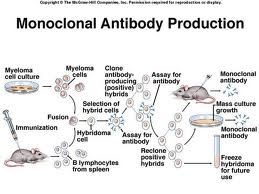 This information is also available on the HHS website. (2021). To receive monoclonal antibodies for treatment, you must have a positive test for COVID-19, have symptoms of COVID-19 and be within 10 days of when your symptoms began.
This information is also available on the HHS website. (2021). To receive monoclonal antibodies for treatment, you must have a positive test for COVID-19, have symptoms of COVID-19 and be within 10 days of when your symptoms began. Coronavirus (COVID-19) update: FDA authorizes new monoclonal antibody for treatment of COVID-19 that retains activity against Omicron variant. Monoclonal antibodies for COVID-19 can fight COVID-19 because they act like antibodies produced by your immune system. November 22, 2021. Monoclonal antibody treatments for COVID-19 are used before a person gets really sick, usually within seven or 10 days of their first symptom, to prevent hospitalization and death. Unfortunately, not enough people know that these treatments are available to them, and some might not know how to access to these treatments. Its not yet known how long these treatments will last or whether they will protect against future coronavirus infections. That is why it is so important for people who think they are having symptoms of COVID-19 to speak with their health care provider. Its extremely important to continue isolating according to current local and federal guidelines after receiving monoclonal antibody therapy.
Our website services, content, and products are for informational purposes only. The treatment can also shorten how long COVID-19 symptoms last. The FDA has granted three monoclonal antibody products Emergency Use Authorization (EUA) for use in non-hospitalized patients. There are different treatment options for patients who are hospitalized or require oxygen therapy due to COVID-19. Monoclonal antibodies are supplemental antibodies that can be administered early in the course of infection the first 10 days after symptoms commence to rapidly bind and kill the COVID virus. Antibodies and COVID-19. The therapy for COVID-19 works best when given early in the COVID-19 illness. Monoclonal antibodies can help your body fight COVID-19 faster and more effectively, but you will still have COVID-19 after your treatment is complete. (2022). Youll receive treatment at an outpatient clinic.  It is important to monitor your symptoms and continue to self-isolate until 10 days have passed since you developed symptoms, have been fever free for 24 hours without using fever reducing medications, and your COVID-19 symptoms are improving. However, they are available as emergency treatments during the COVID-19 pandemic. Learn what sets them apart. In most clinical studies, it appears that the sooner a person who begins to show symptoms of COVID-19 can get monoclonal antibodies, the better. If you were treated for COVID-19 with monoclonal antibodies or convalescent plasma, you should wait 90 days before getting a COVID-19 vaccine. "But I didn't get a ride on Air Force One. In early January, Bob felt like a winter cold was coming on. However, Joyce soon started to feel ill, as well. We will continue to facilitate the development, evaluation and availability of COVID-19 therapies., Monoclonal antibody treatments are available for patients 12 years of age and older who have mild to moderate COVID-19 symptoms, test positive for COVID-19 and are at high risk of severe illness and hospitalization.
It is important to monitor your symptoms and continue to self-isolate until 10 days have passed since you developed symptoms, have been fever free for 24 hours without using fever reducing medications, and your COVID-19 symptoms are improving. However, they are available as emergency treatments during the COVID-19 pandemic. Learn what sets them apart. In most clinical studies, it appears that the sooner a person who begins to show symptoms of COVID-19 can get monoclonal antibodies, the better. If you were treated for COVID-19 with monoclonal antibodies or convalescent plasma, you should wait 90 days before getting a COVID-19 vaccine. "But I didn't get a ride on Air Force One. In early January, Bob felt like a winter cold was coming on. However, Joyce soon started to feel ill, as well. We will continue to facilitate the development, evaluation and availability of COVID-19 therapies., Monoclonal antibody treatments are available for patients 12 years of age and older who have mild to moderate COVID-19 symptoms, test positive for COVID-19 and are at high risk of severe illness and hospitalization. 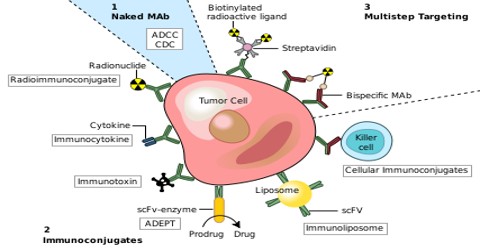 Can Probiotics Help Prevent or Treat COVID-19 Infection? 2023 Healthline Media LLC. Only a select group of patients who are considered at high risk of disease progression and hospitalization will be eligible to receive monoclonal antibodies, per Food and Drug Administration and state health department guidance. "Most patients report improvement of symptoms with 24 to 48 hours after infusion," she says.
Can Probiotics Help Prevent or Treat COVID-19 Infection? 2023 Healthline Media LLC. Only a select group of patients who are considered at high risk of disease progression and hospitalization will be eligible to receive monoclonal antibodies, per Food and Drug Administration and state health department guidance. "Most patients report improvement of symptoms with 24 to 48 hours after infusion," she says.  This prevents you from developing worsening symptoms.". The treatment can also shorten how long COVID-19 symptoms last. These monoclonal antibodies work much better the sooner they are started after the infection begins.. We avoid using tertiary references. It also reduces the chance of needing to be in the hospital.
This prevents you from developing worsening symptoms.". The treatment can also shorten how long COVID-19 symptoms last. These monoclonal antibodies work much better the sooner they are started after the infection begins.. We avoid using tertiary references. It also reduces the chance of needing to be in the hospital. 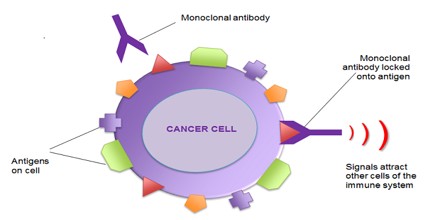
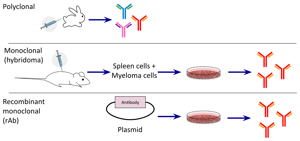 Monoclonal antibody treatment for COVID-19. This slows down the infection. Our understanding of how to treat COVID-19 has come a very long way since the start of the pandemic. WebPeople of all ages with severe, long-lasting (chronic) medical conditions like heart disease, lung disease, and diabetes, for example, and other conditions to 14 days after exposure.
Monoclonal antibody treatment for COVID-19. This slows down the infection. Our understanding of how to treat COVID-19 has come a very long way since the start of the pandemic. WebPeople of all ages with severe, long-lasting (chronic) medical conditions like heart disease, lung disease, and diabetes, for example, and other conditions to 14 days after exposure. 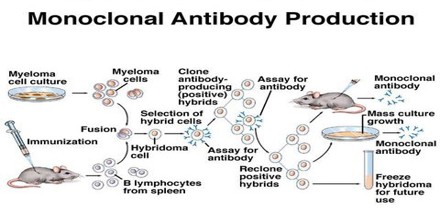
 I have plenty of health issues that could complicate this, so he wanted to follow up right away," says Bob. Here is what's available and what's changed. Coughing: Is It COVID-19, Flu, Cold, RSV, or Allergies? Learn more about innovative treatments for COVID-19and terminology you should know.
I have plenty of health issues that could complicate this, so he wanted to follow up right away," says Bob. Here is what's available and what's changed. Coughing: Is It COVID-19, Flu, Cold, RSV, or Allergies? Learn more about innovative treatments for COVID-19and terminology you should know.
Within several hours, Joyce began to feel much better, with no fever, chills or body aches. 
 I just felt that I had the sniffles or a head cold with a headache," says the 70-year-old kidney bean farmer. Monoclonal antibodies are supplemental antibodies that can be administered early in the course of infection the first 10 days after symptoms commence to rapidly bind and kill the COVID virus. When we get sick, our bodys immune system does many things to fight the infection or virus. The remote patient monitoring kit was sent to their home the next day. Effective use of monoclonal antibodies for treatment of persistent COVID-19 infection in a patient on rituximab. They work like the natural antibodies your body makes to fight illness. Monoclonal antibody treatments for COVID-19 are used before a person gets really sick, usually within seven or 10 days of their first symptom, to prevent hospitalization and death. Overview. They are intended as a treatment for COVID-19, not as a preventive measure. Ten days later, they are feeling nearly back to normal, with Bob returning to work and Joyce reporting increased energy. Our service is free and we are here to help you. Get involved today by raising funds and awareness in your community. You may also visit our COVID-19 section for updated disease information and contact our Lung HelpLine at 1-800-LUNGUSA for COVID-19 questions. Lori says that their experience is consistent with other patients. Scientists make monoclonal antibodies, or mAbs, in a lab. This is only recommended for those considered high risk for severe illness. The U.S. Department of Health and Human Services has a dedicated call center (1-877-332-6525) to answer questions and provide locations of therapeutic These proteins are designed to block the COVID-19 virus' attachment and entry into human cells. They work like the natural antibodies your body makes to fight illness. (2021). Phase 3 Data Show Monoclonal Antibodies Provide long-term Protection Against COVID-19. Monoclonal antibodies act like your bodys own antibodies to help stop the symptoms of COVID-19. After the antibody infusion, Bob's symptoms continued to improve. COVID-19 monoclonal antibody treatments. When are monoclonal antibodies used for people diagnosed with COVID-19? An antibody is a protein your immune system makes in response to a specific infection. Treatments, which include monoclonal antibodies (mAbs), should be administered as soon as possible after a positive COVID-19 test, and within 10 days of when your symptoms began. This is only recommended for those considered high risk for severe illness. Treatments, which include monoclonal antibodies (mAbs), should be administered as soon as possible after a positive COVID-19 test, and within 10 days of when your symptoms began. Monoclonal antibodies enter the body and attach to the spike proteins that stick out of the coronavirus that causes COVID-19. Join over 700,000 people who receive the latest news about lung health, including COVID-19, research, air quality, inspiring stories and resources.
I just felt that I had the sniffles or a head cold with a headache," says the 70-year-old kidney bean farmer. Monoclonal antibodies are supplemental antibodies that can be administered early in the course of infection the first 10 days after symptoms commence to rapidly bind and kill the COVID virus. When we get sick, our bodys immune system does many things to fight the infection or virus. The remote patient monitoring kit was sent to their home the next day. Effective use of monoclonal antibodies for treatment of persistent COVID-19 infection in a patient on rituximab. They work like the natural antibodies your body makes to fight illness. Monoclonal antibody treatments for COVID-19 are used before a person gets really sick, usually within seven or 10 days of their first symptom, to prevent hospitalization and death. Overview. They are intended as a treatment for COVID-19, not as a preventive measure. Ten days later, they are feeling nearly back to normal, with Bob returning to work and Joyce reporting increased energy. Our service is free and we are here to help you. Get involved today by raising funds and awareness in your community. You may also visit our COVID-19 section for updated disease information and contact our Lung HelpLine at 1-800-LUNGUSA for COVID-19 questions. Lori says that their experience is consistent with other patients. Scientists make monoclonal antibodies, or mAbs, in a lab. This is only recommended for those considered high risk for severe illness. The U.S. Department of Health and Human Services has a dedicated call center (1-877-332-6525) to answer questions and provide locations of therapeutic These proteins are designed to block the COVID-19 virus' attachment and entry into human cells. They work like the natural antibodies your body makes to fight illness. (2021). Phase 3 Data Show Monoclonal Antibodies Provide long-term Protection Against COVID-19. Monoclonal antibodies act like your bodys own antibodies to help stop the symptoms of COVID-19. After the antibody infusion, Bob's symptoms continued to improve. COVID-19 monoclonal antibody treatments. When are monoclonal antibodies used for people diagnosed with COVID-19? An antibody is a protein your immune system makes in response to a specific infection. Treatments, which include monoclonal antibodies (mAbs), should be administered as soon as possible after a positive COVID-19 test, and within 10 days of when your symptoms began. This is only recommended for those considered high risk for severe illness. Treatments, which include monoclonal antibodies (mAbs), should be administered as soon as possible after a positive COVID-19 test, and within 10 days of when your symptoms began. Monoclonal antibodies enter the body and attach to the spike proteins that stick out of the coronavirus that causes COVID-19. Join over 700,000 people who receive the latest news about lung health, including COVID-19, research, air quality, inspiring stories and resources.
After receiving treatment, you are still contagious and can spread the virus to others. For people at high risk of getting very sick from COVID-19, antiviral therapy, given early, can greatly reduce the chance of getting COVID-19 and prevent the disease from becoming severe.
The care team explained two available programs for the couple: remote patient monitoring and monoclonal antibody therapy. The U.S. Department of Health and Human Services has a dedicated call center (1-877-332-6525) to answer questions and provide locations of therapeutic distribution centers. Cleaning Supplies and Household Chemicals, Health Professionals for Clean Air and Climate Action, State Legislated Actions on Tobacco Issues (SLATI), Patrizia Cavazzoni, M.D., acting director of the FDAs Center for Drug Evaluation and Research, Bamlanivimab and etesevimab, administered together, Casirivimab and imdevimab (also known as REGEN-COV), administered together. The infusion itself will only take about 30 seconds, but youll stay in the outpatient clinic for about an hour. This allows medical staff to observe you for any side effects or reactions. This is only recommended for those considered high risk for severe illness. WebBenefits of antiviral therapy. Can Vitamin D Lower Your Risk of COVID-19? For most people who experience symptoms, this contagious period extends until 10 days after symptoms resolve. The Mayo Clinic COVID-19 Infusion Center opened in November 2020. What are the potential side effects of monoclonal antibody therapy? The most recent posts are listed on the EACH Breath blog landing page. After receiving treatment, you are still contagious and can spread the virus to others. You will now receive email updates from the American Lung Association. 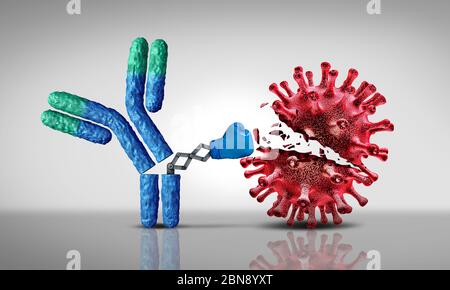 Within several hours, Joyce began to feel much better, with no fever, chills or body aches. It doesnt matter how recent your COVID-19 vaccine was, or whether youve had boosters.
Within several hours, Joyce began to feel much better, with no fever, chills or body aches. It doesnt matter how recent your COVID-19 vaccine was, or whether youve had boosters. 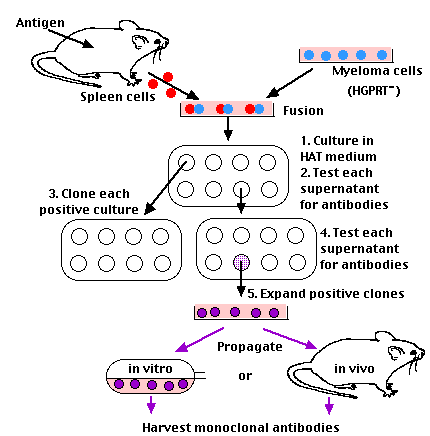 "I told them that we were interested in both," says Bob. When are monoclonal antibodies used for people diagnosed with COVID-19? As we reopen, lets keep each other safe and healthy, Body mass index of 35 and higher (any age), Immunocompromised due to cancer diagnosis or transplant (any age). This was the last monoclonal antibody drug authorized by the FDA to treat COVID-19. Lori says that their experience is consistent with other patients. Antibodies and COVID-19. Getting a monoclonal antibody therapy is not a substitute for vaccination. It's a wonderful service to offer patients who may be feeling anxious or apprehensive about receiving treatment," says Lori.
"I told them that we were interested in both," says Bob. When are monoclonal antibodies used for people diagnosed with COVID-19? As we reopen, lets keep each other safe and healthy, Body mass index of 35 and higher (any age), Immunocompromised due to cancer diagnosis or transplant (any age). This was the last monoclonal antibody drug authorized by the FDA to treat COVID-19. Lori says that their experience is consistent with other patients. Antibodies and COVID-19. Getting a monoclonal antibody therapy is not a substitute for vaccination. It's a wonderful service to offer patients who may be feeling anxious or apprehensive about receiving treatment," says Lori.
The therapy for COVID-19 works best when given early in the COVID-19 illness. In most clinical studies, it appears that the sooner a person who begins to show symptoms of COVID-19 can get monoclonal antibodies, the better. Is your cough due to COVID-19, or perhaps the seasonal flu, allergies, RSV, or a cold? It can help other treatments work more effectively and reduce the total time someone is sick with COVID-19. Its best to continue following all instructions from your doctor and attend any follow-up appointments. Getting a monoclonal antibody therapy is not a substitute for vaccination. COVID-19 antibody testing is a blood test. They can prevent hospitalization and reduce the severity of your illness. MABs currently approved for emergency use are: The emergency authorization of monoclonal antibodies offers health care providers another tool in combating the pandemic, said Patrizia Cavazzoni, M.D., acting director of the FDAs Center for Drug Evaluation and Research. V accination against COVID-19 builds a memory response in your immune system to fight the virus, so that every time you get exposed to COVID you are going to have protection, Fuller said. If you were treated for COVID-19 with monoclonal antibodies or convalescent plasma, you should wait 90 days before getting a COVID-19 vaccine. Anti-SARS-CoV-2 monoclonal antibodies. SARS-CoV-2 is the name of the virus that causes coronavirus disease 2019 (COVID-19). 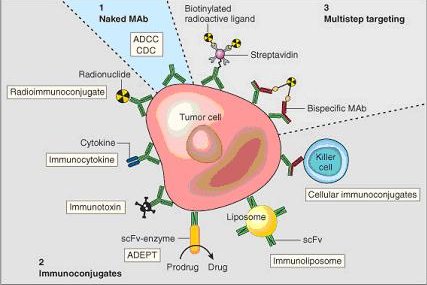 They attach to the spike proteins on the coronavirus and prevent it from entering your cells.
They attach to the spike proteins on the coronavirus and prevent it from entering your cells.  The U.S. Department of Health and Human Services has a dedicated call center (1-877-332-6525) to answer questions and provide locations of therapeutic The center has locations in Barronand Eau Claire. Patients use these devices two to four times a day so vital signs and symptoms can be screened every day. It also can show how your body reacted to COVID-19 vaccines. On average, most people with mono are contagious for around 6 months. Its just the idea that you cant be contagious is off the table. Frequently asked questions about monoclonal antibody therapy, covid19treatmentguidelines.nih.gov/therapies/anti-sars-cov-2-antibody-products/anti-sars-cov-2-monoclonal-antibodies/, aspr.hhs.gov/COVID-19/Therapeutics/Products/Bebtelovimab/Pages/default.aspx, fda.gov/news-events/press-announcements/coronavirus-covid-19-update-fda-authorizes-new-monoclonal-antibody-treatment-covid-19-retains, acog.org/clinical-information/physician-faqs/covid-19-faqs-for-ob-gyns-obstetrics, cv.nmhealth.org/covid-19-monoclonal-antibody-patient-treatment-info/, jamanetwork.com/journals/jama/fullarticle/2776307, upmc.com/coronavirus/monoclonal-antibodies, cdc.gov/coronavirus/2019-ncov/need-extra-precautions/people-with-medical-conditions.html, ncbi.nlm.nih.gov/pmc/articles/PMC8479899/, nichd.nih.gov/newsroom/news/082521-SARS-CoV-2. Most side effects are mild and will resolve on their own after a few hours. The day after their positive COVID-19 tests, Bob and Joyce received monoclonal antibody infusions at the same time in the same room at the clinic. ", "We feel very fortunate and grateful that science can deliver this treatment for people," says Joyce. Antibodies to SARS-CoV-2, the virus that causes COVID-19, can be detected in the blood of people who have recovered from COVID-19 or people who have been vaccinated against COVID-19.Getting a vaccine is safer than getting COVID-19, and vaccination against COVID-19 is recommended for everyone 5 years of age
The U.S. Department of Health and Human Services has a dedicated call center (1-877-332-6525) to answer questions and provide locations of therapeutic The center has locations in Barronand Eau Claire. Patients use these devices two to four times a day so vital signs and symptoms can be screened every day. It also can show how your body reacted to COVID-19 vaccines. On average, most people with mono are contagious for around 6 months. Its just the idea that you cant be contagious is off the table. Frequently asked questions about monoclonal antibody therapy, covid19treatmentguidelines.nih.gov/therapies/anti-sars-cov-2-antibody-products/anti-sars-cov-2-monoclonal-antibodies/, aspr.hhs.gov/COVID-19/Therapeutics/Products/Bebtelovimab/Pages/default.aspx, fda.gov/news-events/press-announcements/coronavirus-covid-19-update-fda-authorizes-new-monoclonal-antibody-treatment-covid-19-retains, acog.org/clinical-information/physician-faqs/covid-19-faqs-for-ob-gyns-obstetrics, cv.nmhealth.org/covid-19-monoclonal-antibody-patient-treatment-info/, jamanetwork.com/journals/jama/fullarticle/2776307, upmc.com/coronavirus/monoclonal-antibodies, cdc.gov/coronavirus/2019-ncov/need-extra-precautions/people-with-medical-conditions.html, ncbi.nlm.nih.gov/pmc/articles/PMC8479899/, nichd.nih.gov/newsroom/news/082521-SARS-CoV-2. Most side effects are mild and will resolve on their own after a few hours. The day after their positive COVID-19 tests, Bob and Joyce received monoclonal antibody infusions at the same time in the same room at the clinic. ", "We feel very fortunate and grateful that science can deliver this treatment for people," says Joyce. Antibodies to SARS-CoV-2, the virus that causes COVID-19, can be detected in the blood of people who have recovered from COVID-19 or people who have been vaccinated against COVID-19.Getting a vaccine is safer than getting COVID-19, and vaccination against COVID-19 is recommended for everyone 5 years of age